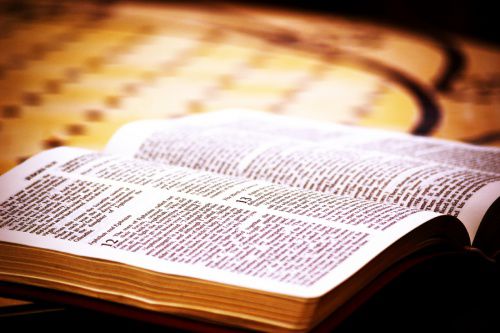Responding to the Oklahoma Supreme Court’s ruling that a Ten Commandments monument on capitol grounds violates the state constitution, critics say that the decision is a legal outlier that ignores the commandments’ historic importance. “It’s a really unusual decision. A lot of states have somewhat similar provisions, but to my knowledge all of them don’t interpret them in an extreme way,” said Jon Scruggs, legal counsel with the religious liberty group Alliance Defending Freedom. “I think it’s a misinterpretation of the Oklahoma constitution.” The Oklahoma legislature’s involvement endorsed “the historical message of what the monument conveyed,” Scruggs told CNA July 8. “Throughout our history there have been religious people, religious ideas, religious principles, and it’s okay to acknowledge that.” The Oklahoma City Supreme Court on June 30 ruled 7-2 that the 6-foot-tall granite monument of the Ten Commandments on the capitol grounds violates the state’s constitutional ban on the use of public property to benefit a religion. Oklahoma Attorney General Scott Pruitt had argued that the Ten Commandments monument was constitutional on the grounds that it was historical in nature. He also said it was almost identical to a Texas version that the U.S. Supreme Court had ruled constitutional, the Associated Press reports. The state’s highest court said that the Ten Commandments are “obviously religious in nature and are an integral part of the Jewish and Christian faiths.” Scruggs suggested this decision contradicts the U.S. Supreme Court’s conclusions. “Although the Ten Commandments have a religious message, it also has an overwhelming historical message that conveys principles about not killing and not lying that really serve as a foundation for a lot of laws.” He also questioned claims that the monument benefits religion. “It’s not like a religion owns the monument. It’s not like a religion put up that monument,” he said. Scruggs said that under an extreme application of the court’s reasoning, a government-run fire department could not put out a church fire because that would benefit religion. “That’s exactly why other state courts have taken somewhat similar language and interpret it accordingly,” he said. “We don’t have to go on a ‘seek and destroy’ mission to wipe away history, to wipe away religious people’s contribution to our country, to faithfully comply with the Establishment Clause (of the U.S. Constitution).” Pruitt, the state’s attorney general, said that the Oklahoma Supreme Court “got it wrong” and that its decision contradicts its previous rulings. He said his office would ask for a rehearing and that the constitution might need to be changed. Archbishop Paul Coakley of Oklahoma City also criticized the decision. “The Supreme Court’s decision to remove the Ten Commandments monument from the Capitol grounds ignores its historical significance in the formation of our state and as an ancient law code having prominence at the place where lawmakers work to enact wise and just laws,” he said June 30. “The Court’s dismissal of these established facts is deeply concerning and disappointing.” The American Civil Liberties Union of Oklahoma represented the plaintiffs in the case. Brian Henderson, the ACLU group’s legal director, said June 30 that the monument “created a divisive and hostile Oklahoma” and sent the message that “some religious beliefs are more valued than others.” The original monument was set up at the capitol in 2012. In October 2014, a man who said he was mentally ill and said he was under the influence of the devil smashed his car into the monument, damaging it. The monument was then replaced in January. The monument was funded by the family of State Rep. Mike Ritze, a Republican from Broken Arrow, Okla. whose bill authorized it. His family paid about $10,000 to build the monument. Other groups have asked to put up monuments. These include a Hindu leader, the satirical Church of the Flying Spaghetti Monster, and a group that wants to put up a depiction of Satan. On July 7. Oklahoma Governor Mary Fallin said the Ten Commandments would stay on capitol grounds. She cited the effort to ask the state Supreme Court to hold another hearing on the monument and proposed legislation to allow voters to amend the constitution.

